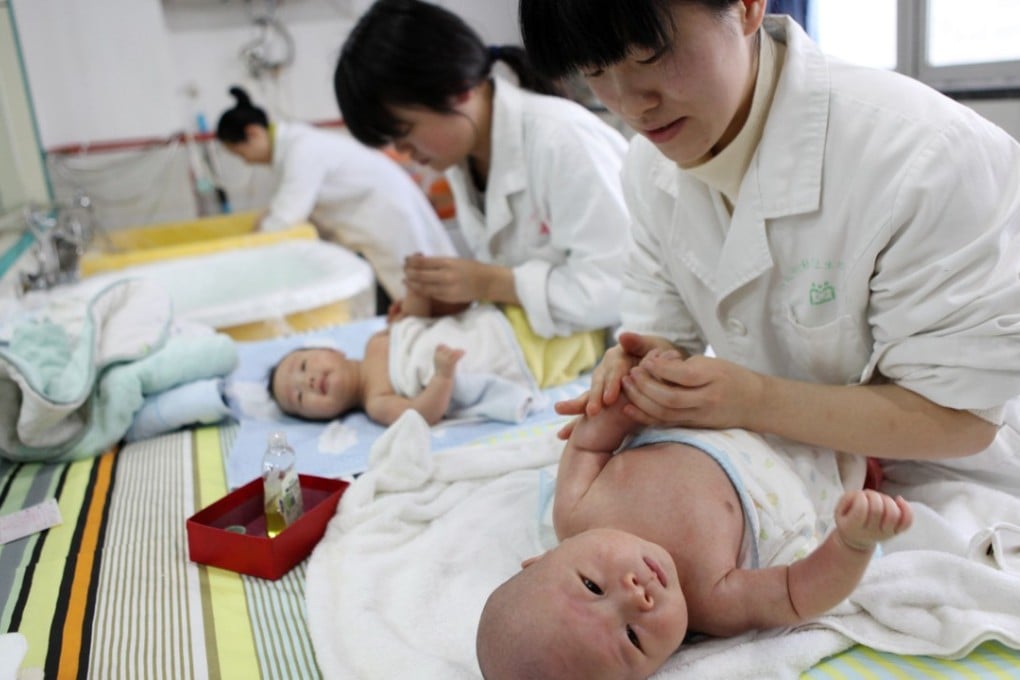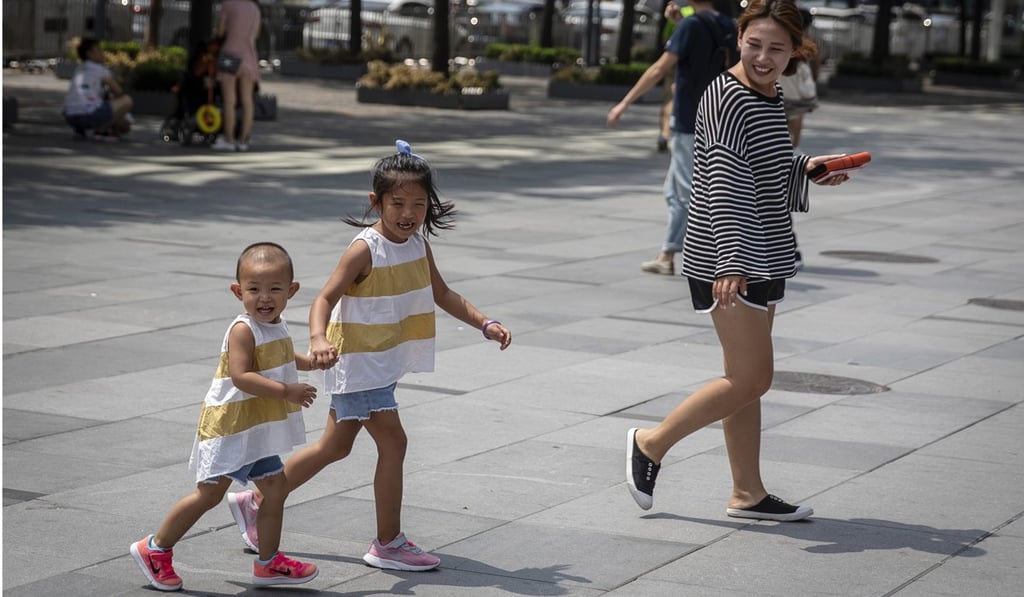Uproar over ‘wacky’ plan to start baby boom in China by taxing adults under 40
Money would go to ‘reproduction fund’ that families with more than one child could benefit from under proposal criticised as violation of human rights

A proposal to tax all working adults aged under 40 – with the money going to a “reproduction fund” to reward families who have more than one child – has caused uproar in China.
The idea was the most controversial among a series of measures floated by two academics from prestigious Nanjing University in an article published by Communist Party mouthpiece Xinhua Daily on Tuesday.
It comes amid a nationwide campaign to encourage people to have more children – a drastic turnaround after a one-child policy that lasted nearly four decades and only ended three years ago – as Beijing worries about a rapidly ageing society, shrinking workforce and falling birth rate creating a demographic time bomb.
But the proposal was roundly criticised, with some saying it was reminiscent of the way the Chinese government controlled its population for so many years. Under the policy introduced in 1979, people were fined for having more than one child and women were forced to have abortions or sterilisation procedures. Critics said both the old policy and the latest proposal violated basic human rights.

Couples can now have two children but the birth rate is falling despite the new policy. The academics, Liu Zhibiao and Zhang Ye, predicted the rate would drop significantly in the coming years, citing official data.
In the first six months, the number of births in mainland China fell by 15 to 20 per cent in many provinces from a year ago, according to local government data. Last year, some 17.58 million babies were born – down by 630,000 from 2016, according to the National Bureau of Statistics.
To tackle the problem, the academics proposed ways to encourage people to have more children, including taxing women and men under 40 for a “reproduction fund” that families with more than one child could claim subsidies from. Those who were not eligible would receive their contributions back when they reached retirement age.